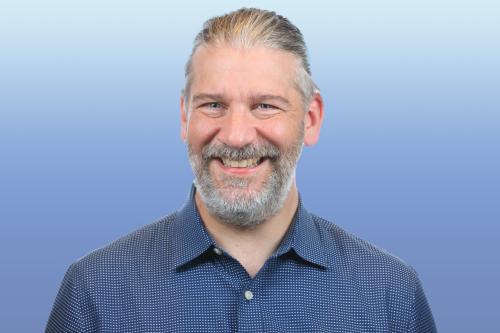Think About Big Positive Changes, Then Find a Way to Make Them Happen
Letter from the Executive Director, August 2022
As NISO has grown and expanded, we have become a place that supports thought leadership and gathering to discuss and advance ideas important to the information community. Traditionally, we have served as a forum for building consensus around the ideas others have brought to us. Following our merger with NFAIS in 2019 and the launch of the NISO Plus Conference, NISO has increasingly become a place where transformative ideas are formulated, expanded upon, and then brought to life as projects, ideally resulting in implementable solutions.
A new project has been a matter of formative discussion over the past two years, and it received a giant boost with significant funding last week. The Cooperative Collections Lifecycle Project (CCLP) is an initiative led by NISO, the Lehigh University Library, PALCI, and 27 other partner organizations, including libraries, consortia, publishers, and systems suppliers. The goal of the initiative is to create a suite of best practices, improve existing standards, and prototype middleware infrastructure for the development and management of cooperative collections development. The project will support varied implementation models, data interoperability and exchange, and sharing of expertise across a range of institutions and consortia. This project seeks to overcome the barriers to wider implementations in libraries and archives, including the lack of available interoperable systems, gaps in data-exchange standards, inadequate governance and decision-making frameworks, and robust assessment tools.
Last week, the Institute of Museum and Library Services announced its National Leadership Grant awardees. It was gratifying that NISO and its partners were recipients of one of these grants, to support the CCLP project. Over the next three years, the funds will support program management by the three lead organizations, an Ithaka S+R research project on cooperative collections development practice, standards development committee support, and modest group travel for meetings and promotion of the project, as well as software development and user-experience resources to prototype middleware tools. In addition, many of the other partner organizations have committed to contributing development resources as cost-share contributions to the project over the course of the project.
A new work proposal to create standards and best practices derived from this project is being prepared by the project team and will be submitted for review by the NISO Topic Committee leadership and eventually the NISO Voting Members for their input and balloting.
This initiative has the potential to significantly impact how libraries interact and work collectively to serve their users with their collections. As others have explored, there are potentially significant cost savings and efficiency benefits, if the project is a success. Ideally, the user experience and access will improve as a result of the CCLP, and the savings from reducing duplicative collections could be reinvested into underserved collections areas. As with any transformative project, the group acknowledges there are potential pitfalls and barriers that it will have to address as we proceed in this effort. Through the consensus process managed by NISO, the group should be able to address the challenges and develop a framework that will suit a broad swath of the library community.
As exciting as the prospects of this project are—and as significant the support that has already coalesced behind it is, I am most thrilled and motivated by the growing role NISO plays in advancing ideas in the community we serve. The growth we’ve seen, in terms of projects, in resources, and in ideas being brought to NISO, is a sign of the increasing trust people place in our approach to solving problems and the team who participate in our work. We are so grateful for the trust, for these additional resources from IMLS, and the many more opportunities that lie before us.
Sincerely,
Todd Carpenter
Executive Director, NISO
